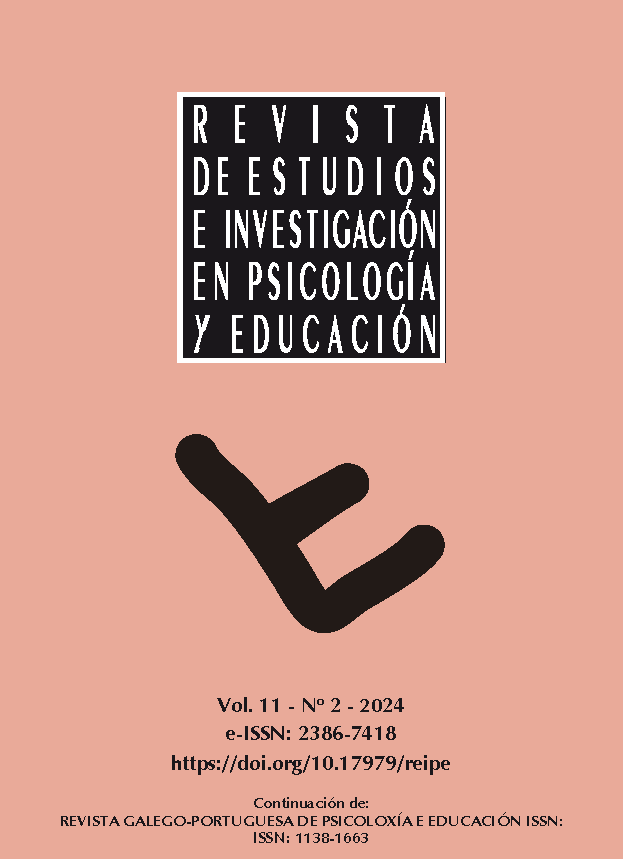Guión de Entrevista de Habilidades Socioeducativas Parentales (RE-HSE-P): Estudios de validez confirmatoria
##plugins.themes.bootstrap3.article.main##
Resumen
Los instrumentos que evalúan conjuntamente las interacciones entre las prácticas y los comportamientos parentales son escasos, pero el RE-HSE-P ofrece estas capacidades. Este estudio pretendía ampliar las propiedades psicométricas del RE-HSE-P con dos objetivos principales: (1) Verificar la validez interna y la consistencia del RE-HSE-P a través del análisis factorial confirmatorio, centrándose en la estructura interna del modelo original definido por el análisis factorial exploratorio con dos factores -positivo y negativo- relativos a las interacciones entre las prácticas y los comportamientos parentales; y (2) Evaluar la validez discriminante del instrumento en dos grupos de edad, niños (preescolares y escolares) y adolescentes, haciendo referencia a las distribuciones percentiles que identifican patrones de interacción en las prácticas y los comportamientos parentales. Participaron 360 padres/madres/cuidadores/as de niños y niñas de edades comprendidas entre los 4 y los 16 años, que respondieron a instrumentos que medían las prácticas educativas y el comportamiento infantil. Se realizó un análisis factorial confirmatorio, tomando como referencia los índices de los modelos de ecuaciones estructurales y los parámetros de buen ajuste; se calculó el alfa de Cronbach para la consistencia interna y se utilizaron percentiles por grupo para estimar los puntos de corte de las interacciones riesgo/no riesgo. Los resultados indicaron buenos indicadores psicométricos, confirmando la estructura de dos factores (Total Positivo y Total Negativo). El RE-HSE-P puede utilizarse para detectar interacciones familiares de riesgo/no riesgo parental con niños/as y adolescentes, y puede ayudar a promover intervenciones preventivas y correctivas.
Descargas
##plugins.themes.bootstrap3.article.details##

Esta obra está bajo una licencia internacional Creative Commons Atribución-CompartirIgual 4.0.
Los trabajos publicados en esta revista están bajo una licencia Creative Commons Reconocimiento-CompartirIgual 4.0 Internacional.
Los/as autores/as son los titulares de los derechos de explotación (copyright) de su trabajo, pero ceden el derecho de la primera publicación a la Revista de Estudios e Investigación en Psicología y Educación, la cual podrá publicar en cualquier lengua y soporte, divulgar y distribuir su contenido total o parcial por todos los medios tecnológicamente disponibles y a través de repositorios.
Se permite y anima a los/as autores/as a difundir los artículos aceptados para su publicación en los sitios web personales o institucionales, antes y después de su publicación, siempre que se indique claramente que el trabajo está en esta revista y se proporcionen los datos bibliográficos completos junto con el acceso al documento, preferiblemente mediante el DOI (en caso de que sea imprescindible utilizar un pdf, debe emplearse la versión final maquetada por la Revista). En el caso de artículos que provengan de estudios o proyectos financiados, esto se hará en los plazos y términos establecidos por la entidad o entidades financiadoras de la investigación publicada.



